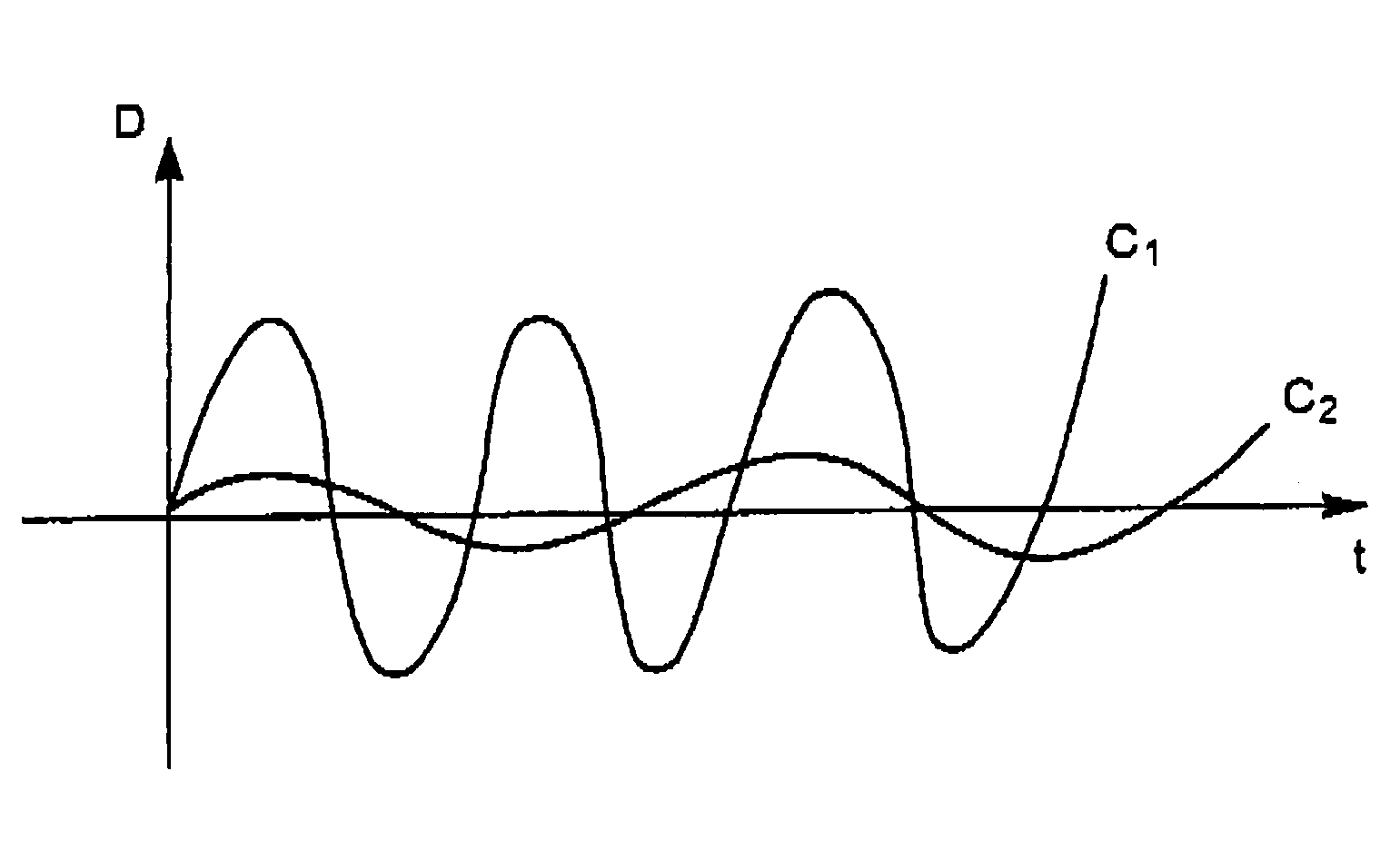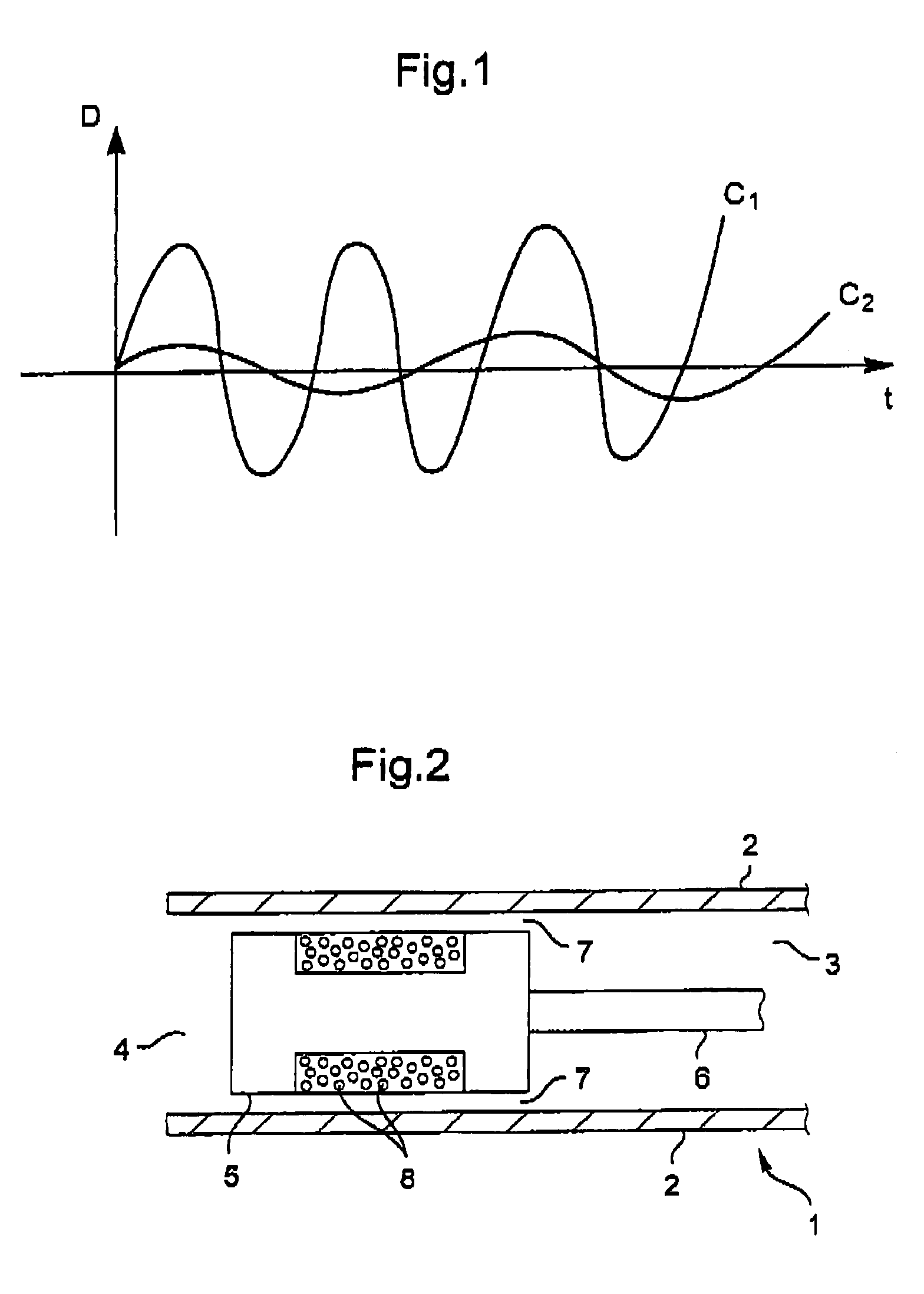Method of controlling vibration damping in a helicopter, and apparatus implementing the method
a technology of vibration damping and helicopter, which is applied in the direction of propellers, propulsive elements, water-acting propulsive elements, etc., can solve the problems of affecting the stability of the helicopter and the flight comfort, affecting the flight comfort, so as to avoid premature wear of mechanical parts and dampers, the effect of controlling vibration
- Summary
- Abstract
- Description
- Claims
- Application Information
AI Technical Summary
Benefits of technology
Problems solved by technology
Method used
Image
Examples
Embodiment Construction
[0039]The drag movements of the blades generate oscillations of two types. The first type of oscillation presents the same frequency as that of the helicopter rotor, and it is referred to as the forced frequency. The second type of oscillation corresponds to drag oscillations presenting a natural frequency and an amplitude that are smaller than the frequency and the amplitude of the oscillations of the first type. These two types of oscillation are referred to respectively as the forced response and the natural response of the blades. These responses are shown diagrammatically in FIG. 1 by means of curves C1 and C2.
[0040]The control apparatus of the invention comprises a drag damper 1 associated with each blade. The damper is preferably a magneto-rheological damper 1, shown diagrammatically and in part in FIG. 2. The damper 1 comprises a frame 2 defining a first chamber 3 and a second chamber 4. The magneto-rheological fluid is moved from one chamber to the other and back again by m...
PUM
 Login to View More
Login to View More Abstract
Description
Claims
Application Information
 Login to View More
Login to View More - R&D
- Intellectual Property
- Life Sciences
- Materials
- Tech Scout
- Unparalleled Data Quality
- Higher Quality Content
- 60% Fewer Hallucinations
Browse by: Latest US Patents, China's latest patents, Technical Efficacy Thesaurus, Application Domain, Technology Topic, Popular Technical Reports.
© 2025 PatSnap. All rights reserved.Legal|Privacy policy|Modern Slavery Act Transparency Statement|Sitemap|About US| Contact US: help@patsnap.com



